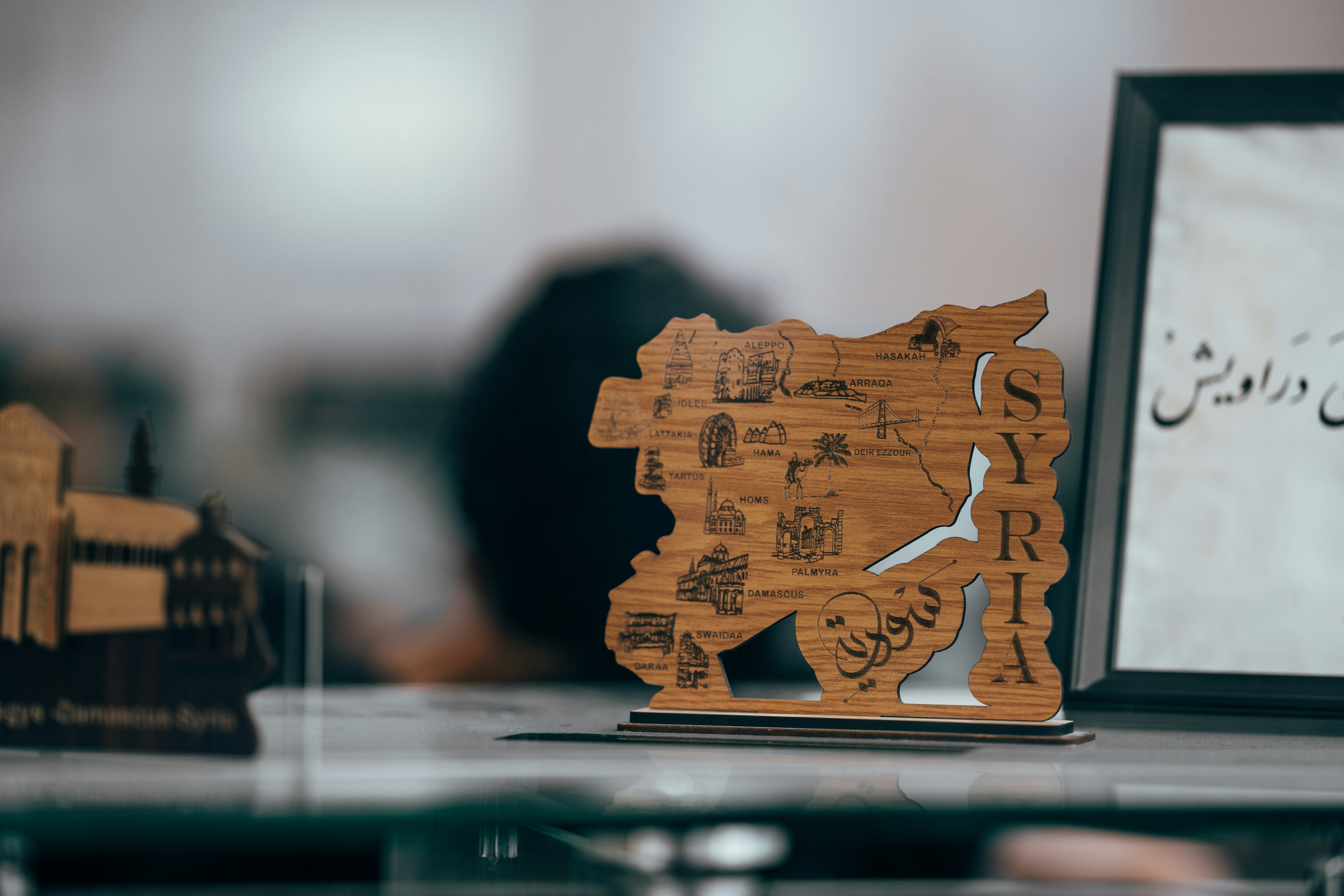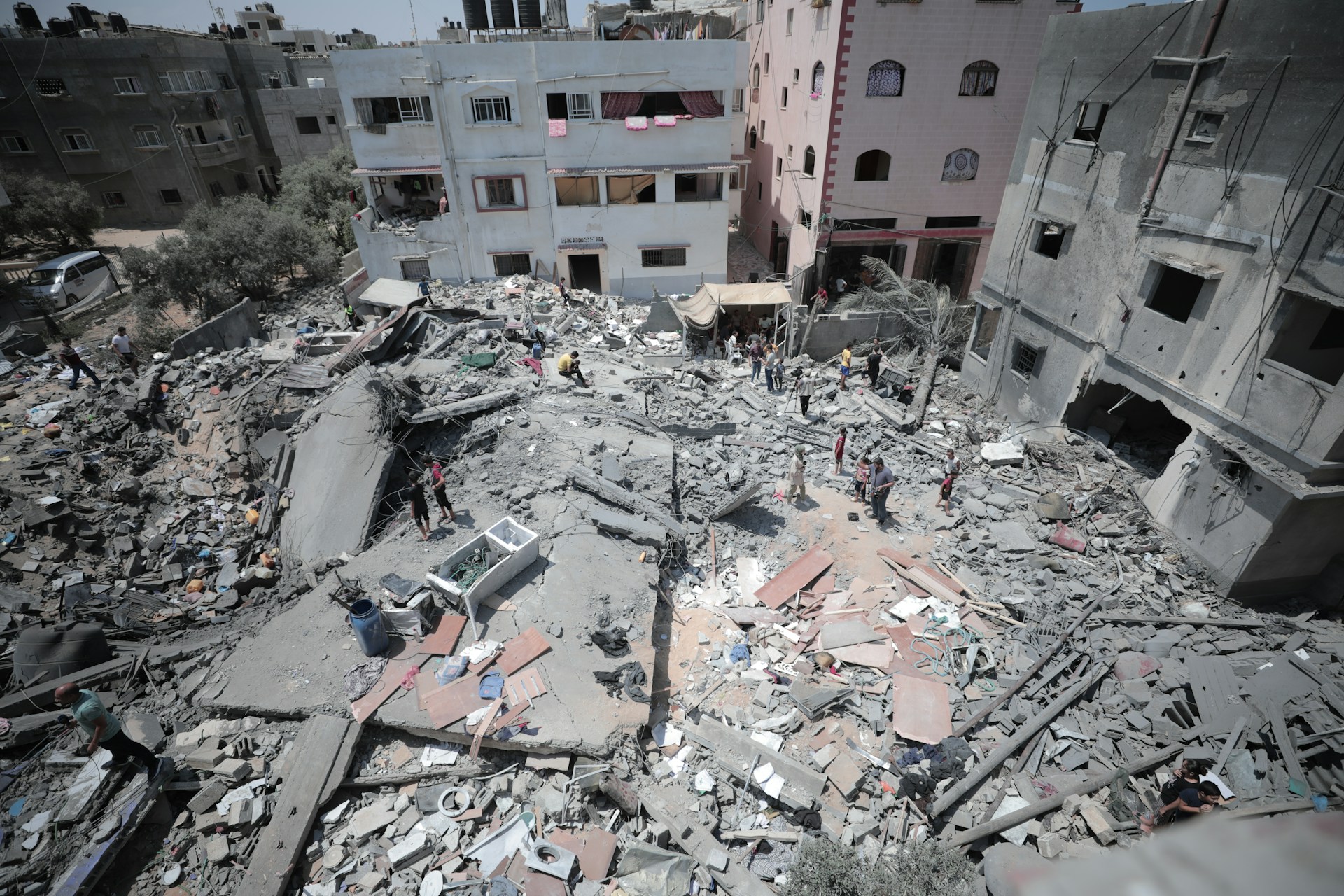Syrian Father Seeks Justice for Family Killed in Chemical Attack as Assad's Regime Falls
A Syrian father seeks justice for his family killed in a 2018 chemical attack, following the fall of Bashar al-Assad's regime.
.jpg) Houses and streets in Syria War knows no stone or man photo by (@Mahmoud Sulaiman) (Unsplash)
Houses and streets in Syria War knows no stone or man photo by (@Mahmoud Sulaiman) (Unsplash)Ghouta, Syria – Tawfik Diab endured six years of silence, denying how he watched his wife and four children die in a chemical attack. Now, with former Syrian President Bashar al-Assad ousted and his regime's falsehoods exposed, Tawfik is finally able to mourn publicly and demand justice for his family.
On Facebook, Tawfik shared a photo of his smiling children with the caption “Martyrs of a chemical attack.” This simple act, unthinkable under Assad’s rule, marked the beginning of his pursuit for accountability.
During Assad’s regime, any mention of chemical attacks was met with severe repression. Tawfik recalled how Syrian intelligence interrogated him, forcing him to deny his own children’s deaths. “No, they’re not mine,” he would say, repeating the regime’s narrative that terrorists, not government forces, were responsible for such atrocities.
The attack in question occurred on April 7, 2018, in Douma, part of the Ghouta district near Damascus. Residents and survivors vividly recall the day toxic chlorine gas descended on their neighborhood, allowing Assad’s forces to recapture the city from rebel groups. Tawfik, his brother Majd, and other survivors recount a night of horror as families suffocated in their homes.
Majd received the first call about the attack. Rushing to the scene, he found his relatives, including nine nieces and nephews, suffocating in the rubble. Among the victims was 40-day-old Joury, the youngest of the family.
Videos taken that night depict lifeless children with foaming mouths and discolored cheeks, haunting evidence of the attack. Tawfik recounted how a chemical-filled barrel bomb struck their building, forcing his family to seek refuge in the basement. The smell of chlorine filled the air, leaving them gasping for breath.
“The chemical barrel came from up there,” Tawfik said, pointing to the roof. “It left a hole, and the chemicals leaked into the building.” Without water to wash off the toxins, the effects were devastating. By the end of the day, 42 of the 47 residents in the building, including Tawfik’s entire family and his brother Rifaat’s family, were dead.
An investigation by the Organization for the Prohibition of Chemical Weapons (OPCW) found “reasonable grounds” that Assad’s forces, specifically the Air Force’s Tiger Forces, were responsible for the attack. Two yellow cylinders of toxic chlorine gas were dropped on Douma, killing scores of civilians.
Despite international condemnation, chemical attacks became a recurring strategy for Assad’s regime during Syria’s 13-year civil war. A sarin gas attack in 2013, which killed hundreds, was supposed to be a red line for global powers. Yet, international responses were muted, emboldening Assad to use chemical weapons repeatedly.
Now that Assad’s regime has crumbled, Tawfik wants the Douma attack reinvestigated and those responsible brought to justice. “We want the rights of our children,” he said. “Everybody who was involved must be prosecuted.”
Tawfik carries his grief quietly, his dark brown eyes reflecting the loss of his family. On his phone, he keeps photo montages of his children: Ali, Omar, Mohamed, and Judy, capturing their lives before they were cut short. Judy, the youngest, was just in first grade.
There are no memorials or plaques at the site of the attack, only new residents living as if nothing happened. But for survivors like Tawfik, the memory remains vivid, and the fight for justice continues.



.jpg)


.jpg)
Conversation